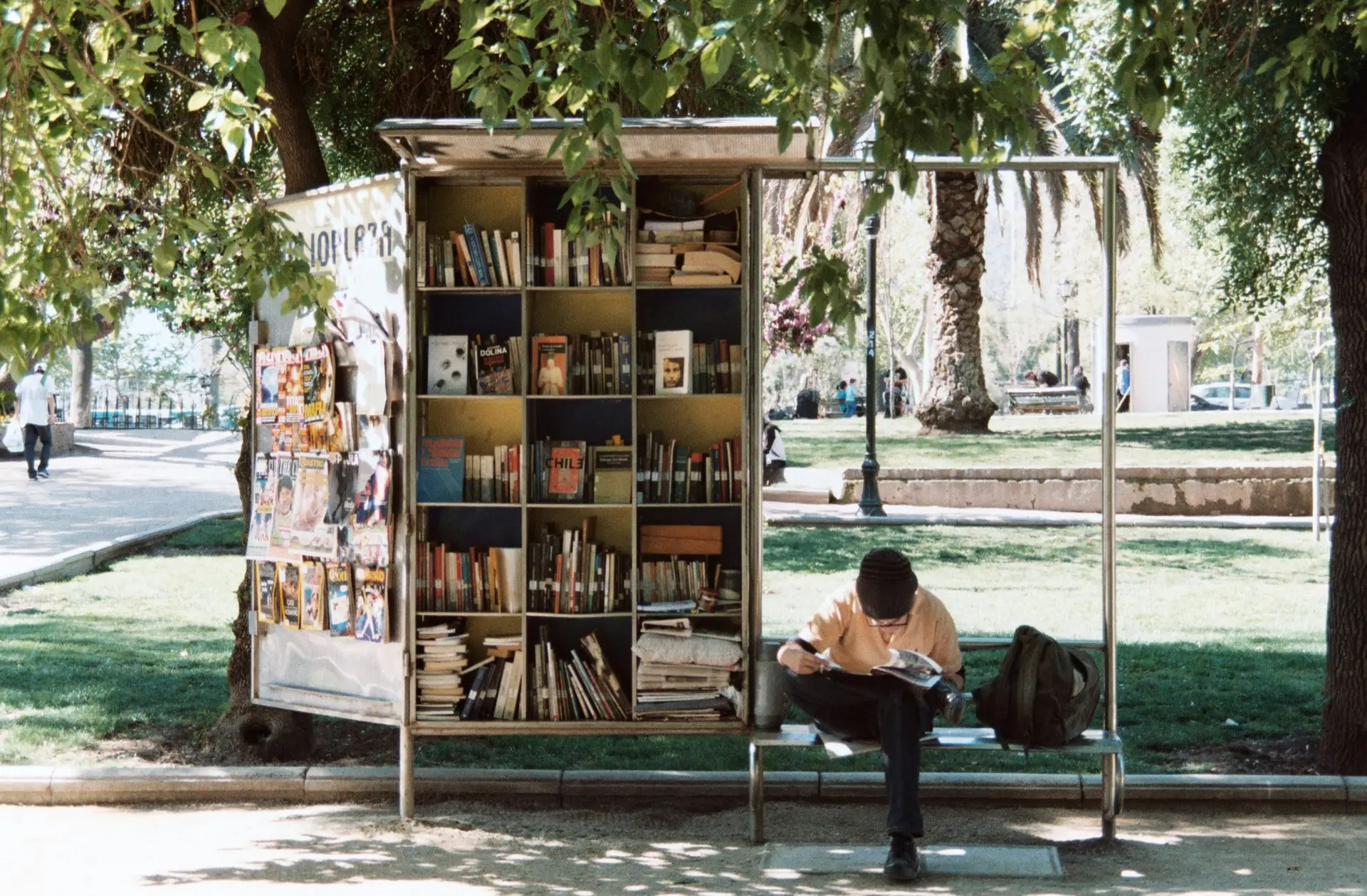
10 Best Chilean Books That Will Surprise You
What are the best Chilean Books? If you ask any literary buff about Pablo Neruda, Isabel Allende, and Roberto Bolaño, they will surely know about these literary giants.
There are very few countries in the world as exciting and conflicting as Mexico.
On one end, it has a great culture, history, food, and beaches, making it one of the premier tourist attractions. On the other hand, Mexico has a long history of political upheavals and criminal violence. Despite the contrasting conflicts, Mexico attracts millions of tourists every year.
It’s strangely interesting that Mexican books are often overlooked. After all, books on Mexican history and culture tell much about Mexico. These books can be a great traveling partner if you are visiting Mexico. Even if you are not visiting, plan to visit, or just want to know the country better, books on Mexico are a great way to start.
Unfortunately, international books on Mexico only discuss the tumultuous aspects and political upheavals. In doing so, they ignore the history and vibrant culture. To address that ignorance, we will mostly discuss books by Mexican authors. After all, Mexican authors know their homeland better, and, in turn, books about Mexican culture and history will be more insightful.
So, here are some exciting Mexican books that you simply can’t miss. These books bring a unique perspective and compelling narrative about Mexico.
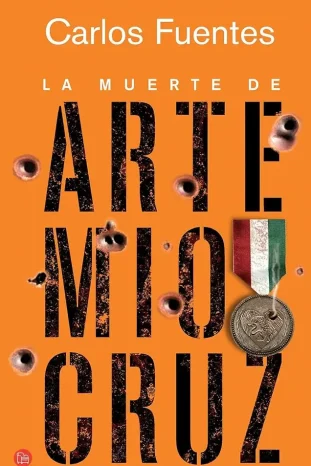
The Death of Artemio Cruz is a classic work in Mexican literature that deeply explores Mexican society and politics. As a historical fiction genre, it captures the profound changes over several decades in Mexico.
It does that through the life and death of Artemio Cruz, who lives through the turbulent evolution of modern Mexico. Throughout the novel, Cruz lies on his deathbed and revisits various moments of his life.
As the narrative shifts past and present, we see Artemio fighting in the Mexican Revolution. In the present decades of modern Mexico, we see Artemio as a powerful and manipulative media mogul, politician, and real estate tycoon. Eventually, each memory of Artemio is a large narrative puzzle that exposes the moral and ethical decay of rapidly transforming society.
If you want to learn how the Mexican Revolution from 1910-1920 transformed the country into modern Mexico, this is one of the best Mexican books to start. One of the best books on Mexican history that explores themes such as identity, corruption, transformation, love, and betrayal.
If you love the historical fiction genre, I recently published the best historical fiction books that you should check out!
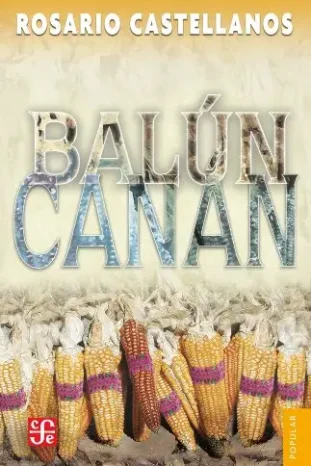
A writer is a reflection of society, and Rosario Castellanos was the finest voice of Mexico when it came to writing about the oppression and troubles of indigenous people. So, it is not surprising that Balún Canán is one of the best books by Mexican authors, delving deep into the complexities of Mexican identity.
The novel is set in Chiapas in the 1930s and discusses the socio-political tensions between the indigenous people and the landowning elite. Castellanos also grew up in Chiapas, so she brings first-hand knowledge and depth to her portrayal of the complexities of Mexican identity and cultural heritage.
The main character is a young girl in a landowning family. The stark contrasts and conflicts within her family and society trouble her. As the Mexican government introduced reforms to improve the rights of the indigenous population, she and her family struggled over power and morality.
This is a truly pioneering work that involves personal and political dilemmas. Castellanos’ masterful portrayal of characters’ inner conflicts and commentary on broader social and political issues make this one of the best books on Mexican history.
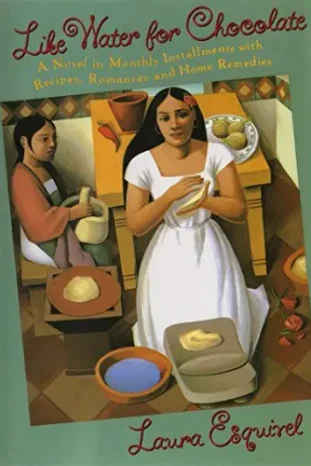
Like Water for Chocolate is one of the best Mexican books, blending magical realism with the deeply rooted traditions of Mexican culture. In the beginning, I mentioned Mexican cuisine, and you will find plenty of Mexican culinary traditions in this novel. It is one of the best books by Mexican authors that explores how food preparation is an act of love, expression and liberation.
The novel is set in the early 20th century during the Mexican Revolution. It revolves around one family, focusing on the youngest daughter, Tita. She is bound by the merciless tradition that the youngest daughter must remain unmarried and care for her mother until her death. Tita’s story, however, is of love, longing, and rebellion, which she expresses through cooking.
These emotions become magically infused into the meals she prepares, affecting those who consume her dishes in extraordinary ways. This magical realism shows her intense, forbidden love for Pedro, who marries Tita’s older sister just to stay close to her.
As the story unfolds, Tita tries to break free from the oppressive family traditions in her life, which are filled with passion, sorrow, and magical culinary creations. Interestingly, each chapter begins with a recipe that brings unique emotions to the story with the experiences of Mexican cuisine.
Mexican director Alfonso Arau also adapted the Like Water From Chocolate into the movie of the same name. The movie is highly rated on Rotten Tomatoes, and you can stream it on Amazon Prime.
If you want to read more about the magical realism genre, you should check One Hundred Years of Solitude, which I covered in the best books to read in 2024.
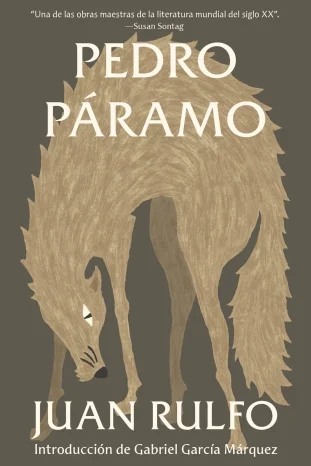
Pedro Páramo by Juan Rulfo is a classic literary work of Latin American literature and magical realism. The novel holds a special place for Gabriel García Márquez, as it helped to overcome writer’s block and inspired him to write One Hundred Years of Solitude. He even said, “I could recite the whole book, forwards and backward.”
It is a haunting story about Juan Preciado, who travels to his mother’s hometown of Comala upon her deathbed. She requests that he find his father, Pedro Páramo. As he arrives in Comala, he discovers that the town is populated by ghosts oppressed by Páramo’s ruthless pursuit of power.
The novel is as much a ghost story as it is psychological fiction. Comala transforms into a spectral landscape with its inhabitants’ unresolved pasts. The haunting portrait of a tyrannical landowner makes this one of the best books by Mexican authors.
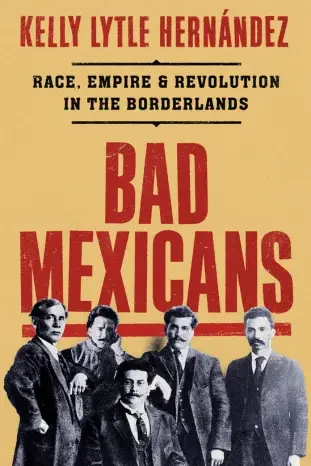
We have discussed many Mexican fiction books above, most of which revolve around the Mexican Revolution. So, why not discuss one of the best books on Mexican history, specifically about the Mexican Revolution?
“Bad Mexicans: Race, Empire, and Revolution in the Borderlands” is a new and unique perspective regarding Mexican history books. It digs into the lesser-known stories of the ‘bad’ Mexicans — the rebels and revolutionaries who resisted the dictatorial rule of Porfirio Díaz.
Led by Ricardo Flores Magón, a group of journalists, miners, and workers rallied thousands to challenge Mexico’s dictator. His regime was supported by U.S. industrialists and protected by U.S. authorities. However, the persistent struggle of magonistas, migrant rebels, sparked the first major social revolution of the twentieth century.

Lost Children Archive is one of the best Mexican books to have come out in recent years. The novel is timely as it discusses the Child Migrants crisis at the US-Mexico border. The novel is a unique work as it blends personal narrative with the pressing political issue of immigration. It mainly talks about the crisis created by the U.S. Border Patrol agents when they separated children from their parents.
The story centers around a family on a road trip from New York to Arizona — a husband and wife and their two children from previous relationships. As they travel across the United States, they confront the harrowing experiences of migrant children along the way.
It is one of the unique and best Mexican books that uses multiple formats, such as Polaroid images, maps, and documentary evidence, to engage the reader. If you want to know how socio-political matters impact individual lives and how they are related to immigration, this is one of the best books by Mexican authors.
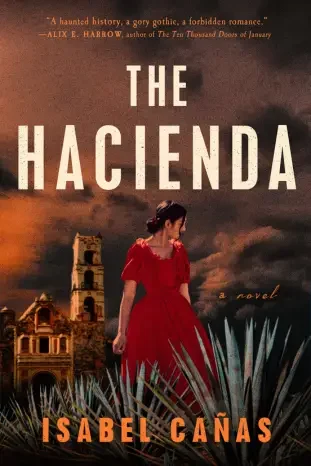
It’s time for some spooky and gothic recommendations, and what better Mexican novel than The Hacienda by Isabel Cañas? This novel is set in and blends horror, history, and romance, making it one of the most exciting Mexican books.
The story is about Beatriz, a young woman who, in post-independence Mexico, marries a wealthy and charismatic widower, Rodolfo Solórzano. After marriage, she moves to her husband’s secluded estate, Hacienda San Isidro.
However, soon after her arrival, Beatriz finds herself in a gothic atmosphere. She is haunted by eerie disturbances that suggest malevolent forces pervade her new home. As the unsettling intensifies, she realizes that the hacienda holds dark secrets related to Rodolfo’s deceased first wife.
Despite all the horror, she decides to uncover the truth. For that, she seeks a local priest skilled in exorcism. That doesn’t bode well either, as it sets the stage for a confrontation with the supernatural.
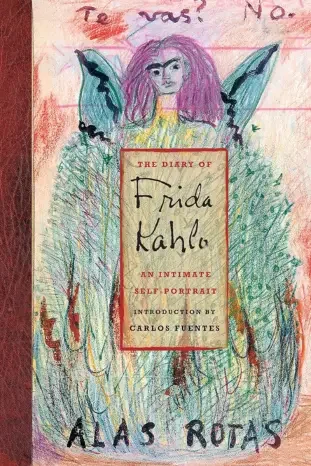
Mexican art and literature on the world scene is incomplete without Frida Kahlo. Her story is not just of a great painter but also of resilience. It’s because she suffered from lifelong injuries due to an accident. Yet, she continued to draw self-portraits using a mirror attached to her bed. During this recovery phase, she mostly drew self-portraits that reflected her physical and emotional pain.
Interestingly, she also used to write a diary that most people don’t know about. In her diary, we glimpse her daily life and resilience, as well as her inner thoughts, emotions, and creative process.
The diary covers her last decade of life, during which she mostly wrote about her struggles with physical and emotional pain. She also reflected on her art and identity using drawings and paintings. If you want to learn more about her life firsthand, this diary is the best source of inspiration.
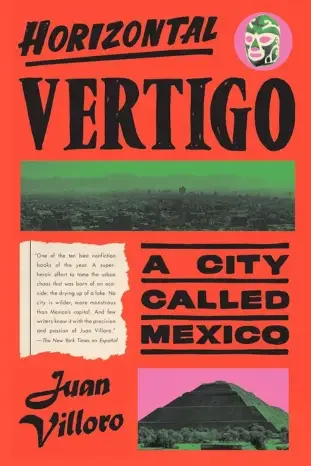
Many cities follow the country name, and Mexico City needs no introduction. It wouldn’t be an exaggeration to say that visitors are more excited to visit Mexico City alone than the country. After all, Mexico City is one of North America’s most vibrant, historical, and cultural cities.
So, it would be a grave injustice if I didn’t include anything related to Mexico City in our Mexican books list. Horizontal Vertigo: A City Called Mexico is one of the best books by Mexican authors that provides an insightful and vivid portrayal of Mexico City.
As Juan Villoro grew up in Mexico City, the book is a series of essays and reflections that capture this dense metropolis’s essence, complexities, and contradictions. He dives deep into the cultural, social, and historical layers of Mexico City, making it one of the best books on Mexican history.
Interestingly, the term “horizontal vertigo” refers to the dizzying experience of sprawling expanses of the city, where vertical landmarks are few and the landscape stretches in all horizontal directions. The book is also a literary map that helps us understand the city’s history and vibrant culture. So, if you want to learn more, this is one of the best books about Mexican culture.
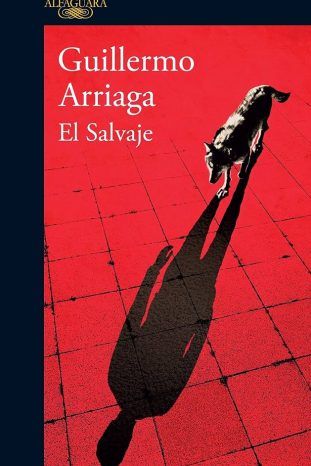
The Savage is one of the best Mexican novels. It spans different times and places, yet all narratives converge around a central, tragic event. It revolves around Juan Guillermo, a young man in 1960s Mexico City, who is shattered after the violent death of his brother Carlos. His brother is a victim of religious zealotry and gang rivalry.
Juan vows revenge against those responsible, and redemption takes him through a dark, often brutal, exploration of grief and justice.
The other narrative is set in the late 1800s when an indigenous man named Amaruq hunts a menacing wolf in the snowy wilderness of the Yukon. Although it is entirely different, Guillermo masterfully connects it with Juan’s tale. The themes that connect both narratives are survival, loss, and the primal aspects of human nature.

One can talk about the books on Mexico forever and make a list of, say 50 or 100 books. But Mexican history books aren’t about numbers but unique and exciting perspectives. Therefore, I only included books by Mexican authors, as no one can write better about their homeland.
Secondly, I mainly included novels to cover books on history of Mexico as we get to know better about those times when fiction meets history. So, you will find plenty of voices, perspectives, and lessons in these diverse Mexican books.
If you have any Mexican history book recommendations, do leave a comment!
You can also sign up for the newsletter below to stay updated on tips like this!

What are the best Chilean Books? If you ask any literary buff about Pablo Neruda, Isabel Allende, and Roberto Bolaño, they will surely know about these literary giants.

We all know how English literature by English writers is easily accessible. And it has been for a long time because a large part of

Now that we’re entering the holiday season, it’s an excellent time for reflection. And what a year it’s been. I changed jobs, got married, and

